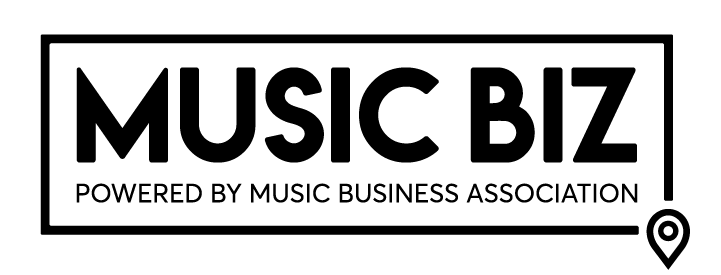Music Biz Association
This year’s Music Biz 2025 conference in Atlanta brought together an eclectic mix of executives, technologists and policymakers to unpack the future of music. If there was one unifying theme across dozens of panels and town halls, it was this: the music industry is not just transforming—it’s decentralizing, digitizing and demanding new rules for engagement.
The OpenPlay Hackathon: Co-Creating The Future Of Music Tech
One of the most compelling examples of this transformation was the OpenPlay x Music Biz Hackathon. Participants used “vibe coding”—prompt-based AI programming—to rapidly prototype software solutions with tools like Cursor, Lovable, and Bolt. More than a showcase, the hackathon functioned as a collaborative lab for next-gen tools, backed by a $10,000 prize pool. The event exemplified the conference’s drive to dismantle systemic silos: 18 companies opened their technology stacks to developers, music professionals, artists, and students who co-created products addressing challenges like rights tracking, revenue attribution, and fan experience design. As hackathon Director, Chris McMurtry explained that for a moment, “the data silos were truly broken.” Diego Leon, a student based in Berlin, won first place with an app that used Audio Shake and Surreal APIs to analyze audio and recommend rights-holder percentages. Second place went to Serona and Katrina from the Mechanical Licensing Collective for Samplify—an app providing automated analysis for music interpolation and sampling requests.
A New Global and Cultural Mandate
Conversations around global strategy and diversity — from “Breaking Borders” to “Gender Bias in Music Recommendation” — reinforced a powerful mandate for 2025 and beyond: success will require cultural fluency, ethical clarity, and algorithmic accountability.
Julie Knibb, Co-Founder of Music Tomorrow, frames it succinctly: “A model mirrors its data, not reality. Catalogs skew male, so male artists dominate. But listeners often favor artists of their own gender. Hyperpersonalization amplifies this, reinforcing existing tastes rather than correcting systemic imbalance.”
This cycle isn’t just an ethical concern—it’s an economic one. Algorithmic bias determines who gets discovered, who gets paid, and ultimately, what audiences hear next. Whether building localized DSP strategies or correcting systemic bias, the road ahead demands more than just technical agility—it requires intentional leadership and proactive reform.
Human First: Resilience, Burnout And Reinvention
Mental health wasn’t just a side conversation; it was a core part of the conference’s ethos. In “The Moments In Between,” moderators Kei Henderson and Brandie Johnson explored the emotional valleys creatives traverse between high points. Alongside this, “Money For Something” tackled the economics of burnout—linking poor mental health directly to lost revenues from canceled tours and burned-out teams. The message was clear: supporting people isn’t a cost—it’s an investment.
Independent And Ascending
Independents are no longer the scrappy underdogs—they’re reshaping the business model. With MIDiA reporting indie market share at 47%, up nearly 10 points since 2022, panels like “47% And Climbing” and “How To Grow And Stay Independent” zeroed in on how technology and financial innovation are fueling growth. Indie artists and leaders are building companies that scale without sacrificing creative or economic control, often relying on interoperability and direct-to-fan platforms to stay agile and profitable.
AI, Attribution And The Age Of Machine Music
The influence of artificial intelligence was everywhere—not in theory, but in tools. From the “AI Town Hall 2.0” retrospective to “Value Creation In The AI Era,” the conversations focused on tangible innovation. Panels such as “Attribution First” and “AI In Music” warned of the dangers of skipping over proper crediting and licensing. Sureel.AI and OpenPlay showcased how modern infrastructure can finally close attribution gaps and future-proof revenue flows.
Yet ethics weren’t far behind. “The Art Of Licensing” and “Coding Fairness” examined the deeper philosophical questions: Who owns art in an AI world? What price should creators pay for innovation? These weren’t just hypotheticals—they were frameworks for action.
Metadata And Monetization: Infrastructure Reimagined
Sessions on metadata, rights management and fraud prevention got into the technical weeds while doubled down on the urgent need for action. “Metadata Mastery” and “Catalog Power Play” reminded attendees that revenue starts with clean, structured data. Meanwhile, “Liable Or Safe?” sent a chilling message to execs ignoring streaming fraud: legal liability is no longer optional—it’s imminent.
The Money Behind The Music
Capital is flooding into music rights—and not just for the major players. Panels like “Indie Music Rights: Major Money Moves” and “Investing In Music’s Future” demonstrated how royalty-backed financing and catalog optimization are being extended to mid-tier and independent artists. Companies like Sound Royalties and Primary Wave outlined financial models that offer cash flow without surrendering control.
Engagement Reimagined: From Roblox To Reels
Reaching fans today requires an evolved playbook. The demise of the playlist model was underscored in “Playlists Are Dead,” which highlighted how immersive experiences on platforms like Roblox are outperforming traditional digital strategies. Meanwhile, “User-Generated Hits” and “Finding Fan Archetypes” explored how remixes, mashups and algorithmic virality can drive discovery—if artists are prepared to license and monetize them properly.
Building Bridges, Not Silos
Lastly, panels like “Plug & Play Success” and “Break The Silos. Build The Future.” addressed a core infrastructural problem: fragmentation. Whether it’s metadata silos, disconnected platforms or outdated licensing pathways, inefficiencies are eroding value. By embracing interoperability and collaborative tech ecosystems, the industry can scale faster—and smarter.
The Takeaway
Music Biz 2025 wasn’t about predicting the future—it was about building it. Whether you’re an artist, investor, label or tech founder, the message was consistent: the next era of music won’t be dominated by the biggest companies, but by the most adaptable ones. Those who can balance innovation with attribution, data with empathy and independence with scale are the ones that thrive.
Read the full article here
